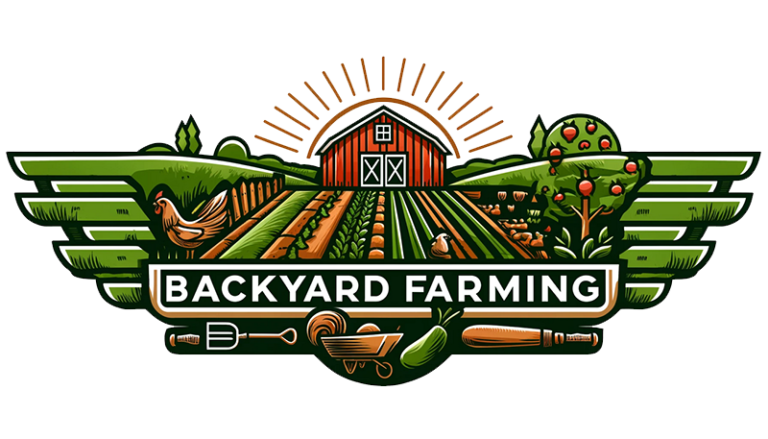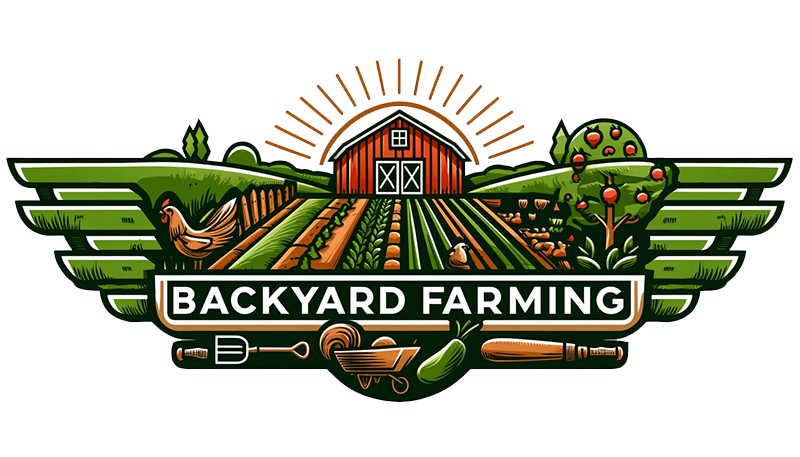Welcome to Backyard Farming Life, where we explore the art and science of running a small-scale farm. In this article, we’ll delve into the question of whether you can successfully run a farm by yourself. We’ll discuss the challenges, benefits, and practical tips for efficient farm management when flying solo. So, let’s dig in and uncover the intricacies of this rewarding endeavor.
Answer to the Question
Can you run a farm by yourself? The unequivocal answer is: Absolutely! While running a farm single-handedly presents unique challenges, it is indeed a feasible and rewarding venture. Let’s explore the factors that come into play when choosing to run a farm solo and how it can be effectively achieved.
Challenges of Running a Farm Alone
Running a farm alone presents a myriad of challenges that require ingenuity and perseverance to overcome. Let’s delve deeper into the multifaceted hurdles faced by solo farmers:
- Workload: Tending to crops, livestock, and administrative tasks single-handedly demands exceptional time management and organizational skills. The workload is relentless and can be physically and mentally taxing.
- Decision-making: Being the sole authority on the farm requires quick and informed decision-making. This includes crop selection, livestock care, and investment choices.
- Problem-solving: When issues arise, such as crop diseases or livestock health concerns, solo farmers must be resourceful problem-solvers, often seeking innovative solutions.
- Isolation: The absence of immediate backup or support can lead to feelings of isolation and loneliness, impacting the farmer’s mental well-being.
- Financial Management: Managing the farm’s finances without assistance demands a strong understanding of budgeting, investment, and risk management.
Despite these challenges, solo farmers can employ strategic approaches and innovative methods to overcome hurdles and achieve success.
Tips for Efficiently Managing a Farm Solo
Running a farm solo can be a rewarding but challenging endeavor. To ensure efficient management, it’s essential to implement strategic approaches that streamline daily tasks and optimize resources. Here are detailed tips for effectively managing a farm when you’re the sole operator:
Managing a farm alone requires meticulous time management and organizational skills. Creating a well-structured schedule for daily tasks, crop maintenance, and livestock care is crucial. Utilizing digital tools such as farming management software can aid in planning and tracking essential activities.
Integrating smart technologies into farm operations can significantly ease the operational load for a solo farmer. Automated irrigation systems, sensor-based monitoring, and drone surveillance are innovative tools that enable efficient resource utilization, crop health monitoring, and early issue detection.
Building connections within the local farming community provides valuable support and insights. Engaging with community groups, forums, and agricultural extension services offers opportunities for knowledge sharing, collaborative problem-solving, and access to resources that benefit solo farmers.
Sustainability is key to the long-term success of a solo farm. Implementing sustainable farming practices not only reduces workload but also fosters a healthier ecosystem. Techniques such as agroforestry, crop rotation, and precision farming contribute to soil fertility, biodiversity conservation, and overall farm resilience.
Integrating drones for aerial surveillance provides invaluable data for monitoring crop health, identifying potential issues, and optimizing field management. Drones have become essential tools for solo farmers, enhancing decision-making processes and enabling proactive crop management.
Crop rotation strategies play a vital role in maintaining soil health, managing pest pressures, and optimizing crop yield. By diversifying the crops grown in different seasons, solo farmers can improve soil fertility, reduce the risk of pest outbreaks, and enhance overall productivity.
Utilizing precision farming methods, such as soil mapping, yield monitoring, and variable rate technology, allows solo farmers to optimize resource use, minimize input costs, and maximize agricultural productivity. Precision farming enhances the efficiency and sustainability of farm operations, contributing to long-term success.
Integrating trees and shrubs within the farm landscape through agroforestry practices provides additional income streams and contributes to biodiversity, soil conservation, and microclimate regulation. Agroforestry is a sustainable approach that supports the long-term resilience of solo farms.
Benefits of Running a Farm by Yourself
Running a farm by yourself offers abundant benefits. It allows for complete autonomy in decision-making and operations. The reward of directly witnessing the fruits of your labor is immensely fulfilling. Moreover, the flexibility to experiment with diverse farming techniques and crops adds a creative dimension. Solo farming also fosters a deep connection to the land and the environment. Ultimately, it is a journey of self-reliance and personal growth, yielding unique satisfaction.
In conclusion, the question of whether you can run a farm by yourself is met with a resounding affirmation. While it entails challenges, the rewards and sense of achievement make the journey worthwhile. Efficiently managing a solo farm involves strategic planning, embracing innovative solutions, and fostering a deep connection to the land. Whether you’re a seasoned farmer or considering embarking on this path, the experience of running a farm alone is an enriching and fulfilling endeavor.

